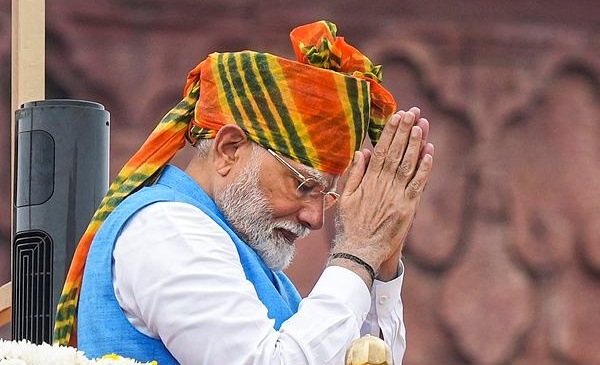One nation, one election may become a reality soon as the BJP-led National Democratic Alliance (NDA) will table the Bill during its current tenure at the Centre, a top government functionary told the Indian Express on Sunday.
Despite the BJP not having an absolute majority and having made a government in a coalition, BJP leaders have said that all these allies are on board and “arithmetic” would not get in the way of this “reform process”, IE reported. This comes as questions have been raised about their support to the one nation, one election plan.
The government functionary said that there is no area where the NDA government, which completed 100 days of its third term on Sunday, has not taken policy decisions to continue the work it had initiated 10 years ago.
Also Read: One Nation, One Election – Explained, idea and arguments around it
“Whether it is defence, space, external and home affairs, education, Digital India and making India a manufacturing hub, spending Rs 11 lakh crore annually on building infrastructure, mahila-yuva-garib-kisan (welfare of women, youth, poor and farmers), we are continuing with and taking forward the work that was started in 2014. Even our foreign policy has a reedh ki haddi (backbone) today, which it didn’t have under previous governments,” the functionary added, IE reported.
What is one nation, one election?
The aim of one nation, one election is to hold elections to Lok Sabha, all state Legislative Assemblies, and urban and rural local bodies (municipalities and panchayats) at the same time.
A high-level committee, headed by former president Ram Nath Kovind, in March this year recommended simultaneous elections for the Lok Sabha and state assemblies as the first step followed by synchronised local body polls within 100 days.
Also Read: One Nation, One Election: What changes did the Kovind panel recommend in its report?
This requires a Constitutional amendment but, as a first step, to hold the Lok Sabha and state elections together, a ratification by states will not be required for the amendment, once it is approved by Parliament. In the second step, elections to municipalities and the panchayats will be synchronised with elections to Lok Sabha and Assemblies in such a way that local body elections are held within 100 days of the elections to Lok Sabha and Assemblies. This will require ratification by not less than one-half of the states.
It is likely that the Law Commission will also recommend it soon. The Commission is likely to recommend that all three tiers of government — Lok Sabha, state assemblies and local bodies like municipalities and panchayats — have simultaneous polls starting 2029 and a provision for unity government in cases like hung house or no-confidence motion.
“The process will begin soon” the government source told IE.
In his Independence Day address last month also, PM Modi had made a strong pitch for “One nation, one election”, contending that frequent polls were creating hurdles in the country’s progress. “The nation has to come forward for ‘one nation, one election’,” he had said.
The BJP had also promised “One Nation One Election” in its manifesto and government sources said they are hopeful that there will be consensus among all parties to implement it.

